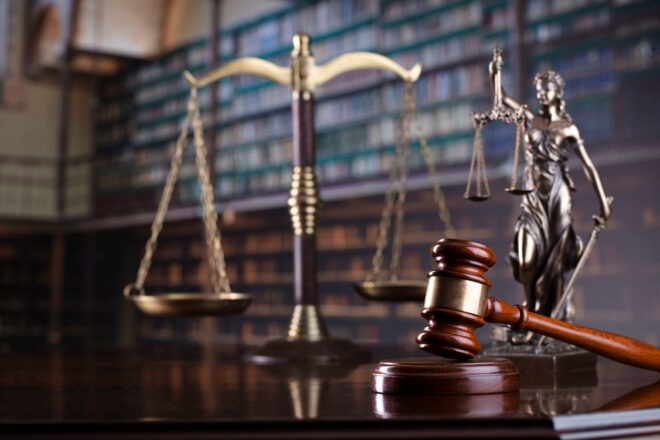

Call Attorney Marni Jo Snyder 24 Hours / 7 Days:
215.515.3360
There are several defenses to first-degree murder in Philadelphia–including lack of intent and premeditation, self-defense, insufficient evidence, and constitutional violations–which can help lead to dismissal, acquittal, or a lesser charge.
In order to determine the strongest defense for you or a loved one, your homicide lawyer will closely review the case to identify weaknesses in the prosecution’s claims–as they relate to evidence and witnesses–and then create a clear and well-supported defense strategy to achieve the best possible result.
Learn about ten defense strategies that homicide attorneys employ to increase the likelihood of reaching a positive outcome.
The defense can argue that the killing was not premeditated, intentional, or deliberate–which may help reduce the charge to second-degree murder or manslaughter. In these situations, the killing may have been accidental or occurred during a “heat of passion” episode. Defense tactics may include highlighting impulsiveness or an emotional outburst as opposed to planned intent.
For a free legal consultation, call 215.515.3360
Although the defendant admits to the killing, they claim that it was justified because they or another person reasonably believed that they were in imminent danger of death or serious bodily harm. In this situation, your Philadelphia homicide lawyer must prove that the use of deadly force to prevent harm was proportional to the threat.
The defense may argue that the prosecution mistakenly charged the wrong person. This could involve challenging the prosecution’s claim that the defendant was at the crime scene when it occurred and, therefore, could not have committed the murder. Evidence that could help support the defense’s argument include providing an alibi, questioning eyewitness testimonies, challenging forensic evidence, as well as video footage, receipts, and GPS records.
With this strategy, a defense lawyer presents evidence suggesting that someone other than the defendant committed the murder. By implicating another suspect and connecting them to the crime scene, weapon, or motive, a Philadelphia homicide attorney can help raise a reasonable doubt about the defendant’s guilt and thus weaken the prosecution’s case. In order for the evidence to be admissible in court, it must be specific, relevant, and meaningful instead of mere speculation or unclear suspicion.
A defense attorney aims to demonstrate that the prosecution failed to prove essential elements of first-degree murder–including intent, premeditation, and the defendant’s involvement–beyond a reasonable doubt. This may involve pointing to gaps, inconsistencies, contradictory witness testimony, a lack of motive, or insufficient forensic evidence in order to create reasonable doubt regarding the defendant’s guilt among jurors. If the evidence is not strong enough or speculative, it could help lead to a lesser charge, acquittal, or dismissal.
Your Philadelphia homicide lawyer could argue that a constitutional violation from police or prosecutors–such as an unlawful search and seizure, denial of the right to counsel, or forced confession–tainted key evidence or violated the defendant’s due process rights. If the court determines this to be the case, crucial evidence–including statements or physical evidence–could be suppressed, significantly weakening the prosecutor’s case and potentially resulting in dismissal or acquittal.
This defense challenges the credibility of a confession by arguing that it was not voluntary or genuine, or made while the defendant was under duress, coercion, or without necessary Miranda warnings. It may have been influenced by factors like lengthy interrogation, mental vulnerabilities, or police misconduct. In this situation, the defense could file a motion to suppress evidence or introduce evidence such as alibis, forensic contradictions, or a history of unreliable interrogation tactics.
The insanity defense contends that the defendant lacked mental competence at the time of the crime and, therefore, could not understand the nature or wrongfulness of the offense. Examples of supporting evidence include psychiatric evaluations and expert testimony, as well as a history of mental illness.
The defense could argue that they were drugged or otherwise involuntarily intoxicated (e.g., forced, deceived, or unexpected side effects from prescription medication); as a result, their impaired mental state prevented them planning and intentionally killing another person. It is important to note that voluntary intoxication is normally not a credible defense for first-degree murder.
With this approach, a homicide attorney negotiates a plea bargain for the defendant, meaning they plead guilty to a less serious crime–such as third-degree murder or voluntary manslaughter–rather than proceeding to trial for first-degree murder. In doing so, the defendant can greatly mitigate the risk of receiving the harshest penalty at trial, offering a more predictable and less severe outcome.
If you or a family member are charged with first-degree murder, you can depend on the proven Philadelphia homicide lawyers at the Law Offices of M.J. Snyder, LLC to advocate for the most favorable outcome. We can thoroughly investigate your case, provide the expert advice you need to navigate the legal system, and fight to protect your rights. Gain clarity on your charges and circumstances by scheduling your free consultation today.
Call 24/7: 215.515.3360
Email: info@snyderlawyer.com
Fax: 215-376-6981
This website is for general informational purposes only. The act of sending an e-mail to the Firm or any attorney at the Firm, or submitting a form response or other materials through the website, will not create an attorney-client relationship. The only way to create an attorney-client relationship with the Firm is through a written agreement.Read More